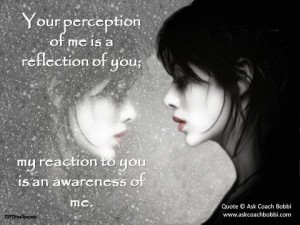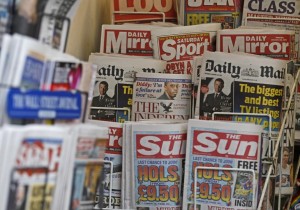 People who are in the business of exposing or tearing down other people with words, pictures or their offices of power feel a compulsion to do it. Some even feel a dark kind of “pride.” There are stories that would horrify most of us about tabloid reporters meeting in the pub and slamming back drinks in celebration of their day’s work– the torture and dismemberment of yet another celebrity on the front page. High fives all around!
People who are in the business of exposing or tearing down other people with words, pictures or their offices of power feel a compulsion to do it. Some even feel a dark kind of “pride.” There are stories that would horrify most of us about tabloid reporters meeting in the pub and slamming back drinks in celebration of their day’s work– the torture and dismemberment of yet another celebrity on the front page. High fives all around!
For some, it’s a game, or it’s a junkie’s addiction to the rush of adrenalin. Occasionally, it is sexually gratifying to demean or destroy another. It satisfies a need to express testosterone that is unregulated or to hide from one’s own impotence. It is that surge of “power over” someone that satisfies an inner emptiness and distracts the psyche from its self-indictment of impotence. Bullies bully because they need to feel adequate, and that drive comes from a deep sense of inadequacy. Wounded people wound other people. Hurt people hurt people.
What do you call it when people are assumed guilty and publicly pilloried before being investigated or lawfully prosecuted?
Well, you don’t call it due process.
What do you call it when people become a personal obsession, are targeted by law enforcement when evidence doesn’t support their guilt, their accusers have a track record of extortion, grand juries have refused to indict them yet are stalked and harassed and eventually maliciously prosecuted?
You don’t call it justice.
What do you call it when humans are held up as less than human, left twisting in the wind and witnessed dying by a gleeful and applauding public?
They called it “public hanging.”
When it involved a black man: “lynching.”
And lynching used to include de-masculating black men by hacking off genitals so that the victim would have no sexuality, no gender and would no longer be a threat to the “gentlewomen” who came to observe and brought their children along to witness the punishment of a wayward black.
What do you call it when children are forced to witness human carnage?
Indoctrination.
Confusion.
Soul loss.
PTSD.
Bullying.
Child abuse.
What do you suppose Southern children felt while growing up in a segregated and racist culture where humans whose bodies were constructed the same, looking just like them, who seemed just as human, whose nannies loved them like or demonstrably more than their mothers, and who attended churches that preached about God but banned people and condemned them for the color of their skin? What do you imagine those children suffered?
What do you suppose today’s children feel when they are forced to walk a gauntlet of tabloids in the grocery store where the people on the covers are publicly bullied and humiliated? Where do you suppose they get the idea to bully someone with words and images and release it on the web for public consumption?
Where do you think their contempt for authority comes from?
What do you call it when humans are splayed for viewing, dismembered publicly, carved up and then served to “consumers” in the tabloids or on the Internet?
Consuming chunks of humans carved up and served up for consumption used to be called what it is: “cannibalism.”
If an industry is profit-driven— and the media is, the rules (written but usually unwritten) that govern it are constructed solely to make money. When there is a moral or ethical dilemma inherent in an endeavor, there are choices to be made: act morally, immorally or amorally. When there is a wide gap between human values and human behavior, dissonance arises. Dissonance is uncomfortable. Within an ethical dilemma there is a lack of ease, an internal agitation until that gap is closed. To silence that internal hum of dissonance, an adjustment becomes necessary. You can’t continue to do what you’re doing without making an adjustment to close the gap. You are compelled to either lower the values or elevate the behavior. Disharmony in the soul is intolerable.
Our insides know the difference between human darkness and human light. We know when we are doing the work of either. So, when an ethical dilemma reaches fever pitch, continuing to do the work of human darkness requires justification. For those who live and work in circumstances that present soul-searching and ethical dilemmas, abandoning the soul means converting to the “dark side.” If one is addicted to the attention a job brings, feels impotent in one’s personal life or wants to hang on to a job, they must justify their behavior in order to silence the dissonance. Tabloid journalism’s culture requires overriding one’s conscience. Because the work involves human beings, then one must dehumanize them in order to keep going. If one is going to continue stalking and dismembering someone, they must dehumanize them in their own minds or find them guilty.
 Dying humanizes. Being presented with the reality that one participated in the torture and dehumanization of another who is now dead is unbearably painful. Denial is the only thing that assuages that pain. One must continue to believe in the guilt of the innocent and in denial of any complicity in their demise. Those with pathology of the sociopath or psychopath have no conscience at all and may even applaud the demise of those they stalked because it serves them and their denial and it serves to hide their complicity by reinforcing the guilt of the deceased. Now the offending party is sentenced to a life of running from their own shadow. When the self’s shadow cannot be embraced and assimilated, the only defense is to project it onto others. The cultural abuse of Michael Jackson is evidence of a mass projection of the human shadow onto one man. It’s unprecedented and unduplicated.
Dying humanizes. Being presented with the reality that one participated in the torture and dehumanization of another who is now dead is unbearably painful. Denial is the only thing that assuages that pain. One must continue to believe in the guilt of the innocent and in denial of any complicity in their demise. Those with pathology of the sociopath or psychopath have no conscience at all and may even applaud the demise of those they stalked because it serves them and their denial and it serves to hide their complicity by reinforcing the guilt of the deceased. Now the offending party is sentenced to a life of running from their own shadow. When the self’s shadow cannot be embraced and assimilated, the only defense is to project it onto others. The cultural abuse of Michael Jackson is evidence of a mass projection of the human shadow onto one man. It’s unprecedented and unduplicated.
It’s all very pathological, this death dealing to humans instead of affirming human life and it’s bright shadow. It is the nexus of human suffering. Whether one, one’s work and one’s life is death dealing or life affirming depends on “perspective” and the perspective that one maintains or in some cases, perpetually defends. The grabbing, justifying, vilifying, and denial is actually the perpetual motion of running from one’s shadow. The illusion is that there is a way to outrun it. It can’t be done for it lives inside us. That, ladies and gentlemen, no matter how it is decorated or how opulent it may look, is called…
Hell.
Hell and heaven are perspectives. Unethical financial moguls must see people and reduce them to “cash cows,” prison guards must see people as “inmates,” rogue cops must see people as “criminals” or “perps.” Fearful racist people must see dark skinned people in hoodies as “up to no good.”
Reducing people to subhuman status helps to make inhumane behavior easy. It worked for the Nazis and Jews in Germany, the Tutsis and Hutus in Africa, the Catholics and Protestants in Northern Ireland— and justifies genocide and war making all over this planet. It keeps dictators in business, populations under control, wealth centralized by class and race, and it justifies racism, classism, sexism, lookism, elitism, jingoism, ageism, privilege-ism, nationalism and all the other dehumanizing isms.
Human pathology in America, where Michael Jackson was born, lives in the DNA, in the history of the country. America was built on genocide (the systematic and sustained killing of the Indigenous– Indians) and the kidnapping and involuntary servitude of Negroid Africans (slavery.) In order to sustain genocide, slavery and mass murder, those targeted must first be reduced to non-human.
When we are dealing with real people and their hearts, souls and emotions, the only way to get through the dissonance that comes with endeavors that are less than honorable or which lack integrity is to dehumanize them and make them “other.” This is a primitive and tribal way to navigate human affairs and, unless you are a Neanderthal, it has no place in modern society. Old attitudes die hard and sometimes generations must pass before the saved up and ancestral inflammatory feelings and resentments of the past are cooled.
How to effectively “otherize” and dehumanize a People:
Label their religion as heresy.
Hate their race.
See their philosophy as “wrong.”
Ridicule their god.
Devalue their culture.
Make them aliens.
See them as “different” or “less than.”
Call their beliefs a lie.
Feel superior.
Create class and privilege and keep them oppressed.
Engage in Guerrilla Decontextualization of the group.
How to “otherize” and dehumanize a singular human being:
Deem them ugly.
Make or call them disfigured.
Repeatedly question their motives.
Humiliate them publicly.
Expose their human follies and foibles.
Laugh at them.
Deride their talent.
Make fun of their values.
Belittle their mission.
Deconstruct their identity and humanity.
Demonize them.
Engage in Guerrilla Decontextualization of the individual.
 So what did happen to Michael Jackson? If you understand the internal struggle of the human to be soulful or not, to be ethical or not, to cave in to convention or not, you can grasp what happened to Michael. The perfect storm gathered to make him less than human. The tradition of calling African Americans names and considering them subhuman is still very much alive, and in Michael’s youth it was rampant. Michael drew fire because he was daring, talented and powerful, and much of what he did challenged the establishment and flew in the face of convention. Too powerful for that racist and classist establishment; some saw him as a threat, corrupting the minds of youth.
So what did happen to Michael Jackson? If you understand the internal struggle of the human to be soulful or not, to be ethical or not, to cave in to convention or not, you can grasp what happened to Michael. The perfect storm gathered to make him less than human. The tradition of calling African Americans names and considering them subhuman is still very much alive, and in Michael’s youth it was rampant. Michael drew fire because he was daring, talented and powerful, and much of what he did challenged the establishment and flew in the face of convention. Too powerful for that racist and classist establishment; some saw him as a threat, corrupting the minds of youth.
The music industry has a long tradition of signing artists and then owning their souls. The record company dictated what you sang, what you wore, how much exposure you had, what kind of music you were going to do and how much and how it was going to be promoted. A music icon in the making with a huge audience and a lot of power might challenge long-standing traditions, and would need to be reined in and controlled so that the power structure and tradition didn’t die and the industry stayed in homeostasis. We may never know what was said and done about Michael Jackson in closed-door boardroom sessions.
Jackson bitterly complained about how African American artists were treated, about how he was treated by the industry. He joined a public demonstration against the tyranny of music moguls and their corporate tactics. He spoke openly about the oppression of black artists. And he was punished for it.
The tabloid industry cannot afford to see their targets as real people, so they become “celebs” who are less than human “targets”: fair game and fodder for screaming headlines, ridicule, late-night TV comedians,and gossip magazines online and in print. For tabloid journalists and paparazzi, it is an occupational hazard to view celebrities as human beings. For many in that industry, the rush of the hunt, adrenalin and power, as well as the obscene amounts of cash, dictate their ethics. If that industry had any conscience, it would have changed after Lady Diana, Princess of Wales, was killed while being chased for the “money shot.” Instead of a front-page splash with a juicy story about her love affair, we were presented with breaking news of an impending funeral.
Rogue cops and vigilante justice are still alive and well wherever there are those who seek power and control for personal and pathologically sick gain—whether that is ego, sexual gratification or to fill an empty hole in their souls. The law enforcement industry also has its adrenalin addicts and arrogance and attitudes toward justice, minorities and crime. There are cops who look the other way, cops on the take, cops who plant evidence and cops who lie—and they make every law enforcement individual look bad. A power broker who is white, male, fundamentalist, racist with testosterone and arrogance is more dangero us than any street criminal could ever be.
us than any street criminal could ever be.
The treachery and oppression experienced by Michael Jackson for decades has come home to us now. It hit home when Wall Street betrayed us and when Rupert Murdoch was exposed for the treachery of hacking phones for tabloid material. He has since been recorded scoffing at Parliament and will be called back to explain himself.
It is a waking up. We have been in a trance, asleep, unaware and complicit in our own demise. Michael Jackson’s story has become our own. We are waking up and beginning to realize that the love of power kills but the power of love heals.
Michael was the target of three major industries– media, music and law enforcement. And of the worst of the elements that corrupt good people—power and money. And he was an icon— the most famous man in the world— who pushed the boundaries, rattled the teeth of the establishment and crossed the lines of convention. That made some people nervous and enraged others. Michael blurred the lines of race by fixing his nose and “turning white”; he blurred the lines of gender by being a sensitive male and looking androgynous and he crossed musical boundaries. He raised the bar for videos, engineered new sounds and methods, and knew how to use drama— and he did it all publicly and well. And there was no evidence that he was going to fade or go quietly into the night.
He dared to address a lazy world: allowing its children to die without intervention in Third World countries; trashing a planet without conscience; seeing children disappear without alarm; ignoring the growth of gangs without alternatives; killing children in war zones; allowing people to starve and go without water; and behaving in a thousand soulless ways. He said it dramatically in lyrics, in song, in performance, in videos and with words. He called out a world gone silent and limp in the face of responsibility and stewardship for its own culture and problems.
So what’s a culture to do when faced with such a troublemaker? When someone is too popular, too powerful, too talented, too demanding, too avant garde, too loud, too in your face and too larger than life? What are we to do with such an irritant, especially when he’s right?
Silence him.
Vilify him.
Ridicule him.
Make him irrelevant.
Mock him.
Humiliate him.
Nullify him.
Crucify him.
Lock him up.
Hamstring him.
But above all—dehumanize him.
Especially attack his face, for the face holds the recognition, the identity. Attack the way he looks, because it is the self he presents to the world. Take away everything that might reveal his humanity. Then label him a “freak” and dismember him in public for the entire world to see, and make it into a popular game and pastime to delight the masses. No need to worry for there is no harm done, really; he is not human, or is subhuman—a “monster,” an “animal.”
Michael Jackson was a mirror. He reflected everything that was wrong with the culture, with the twentieth century, with the world and with humanity. And when the image reflected back is ugly, nobody—but nobody— is going to love the mirror. Except for those awake or waking.
——————————-
 Aberjani explains “guerilla decontextualization” as it relates to Michael Jackson:
Aberjani explains “guerilla decontextualization” as it relates to Michael Jackson:
Part of the definition of guerrilla decontextualization is the attempt to intentionally misrepresent an individual’s character or intentions for purpose of decreasing any measure of influence or authority they might possess in either public or private circles.
His presence in the world was a powerful ingredient within the overall antidote to the mega-tons of despair that can weigh human souls so far down that for millions (if not billions) life on earth feels more and more like death in hell. His voice remains part of the antidote. That’s antidote as in: anti-hatred, anti-war, anti-ignorance, anti-abuse, anti-oppression, anti-prejudice, anti-bigotry, anti-fear.
Poem for an Olympian
And just to be clear, to speak of Jackson’s voice is to speak of more than the acoustic timbre that radiated like vibrating sunlight from his lungs and heart and throat. It is to acknowledge that quality of genius for giving, living, serving, teaching, loving, exemplifying simplicity, and creating–– that comprised the essence of everything he strived to become.
For millions, the devotion to MJ is less about dedication to the singer per se than it is to the principles which he battled so admirably to embody: generosity of spirit, perseverance, aesthetic beauty, and artistic excellence. If musical entertainment and philanthropy were sports, Jackson would have been an Olympian decorated many times over.
Summer-Song Rhapsody for Michael Jackson
(Aug 29, 1958 – June 25, 2009)Summertime opened like a myth spun from gold,
delivering your talent through ages of classic genius
to plant the seeds and nourish the beauty
of all the bright wonders that would color your dance.Is any path so demanding as that of living a miracle?
Like a cosmic gymnast on a beam of uncommon grace,
or a swimmer slicing through waves of childhood tears–
you transformed fortitude into Olympian triumph.
Hid your hard-won treasures inside the hearts of all who loved you.The more sincere the soul, the heavier the cross endured.
Your voice strung notes like pearls of sky-blue hope
around the trembling throat of humanity’s crimson agony.
Upon the heads of those abused and disinherited
your song placed crowns of inspired revelation.There is no faith so perilous as faith in love.
Summertime blossomed fields of rose-scented dreams––
and death amplified your sudden absence with new life…
to plant the seeds and nourish the beauty
of all the bright wonders that colored your dance. ~Aberjhani

5 Comments
Rev. Kaufmann–
I thoroughly enjoyed this intellectually rigorous examination of Tabloid Taliban “journalism” and plan to spend more time checking out the entire series. Your work honors Michael Jackson for certain but goes quite a bit beyond that to help us recognize and treasure that which is worth honoring in all humanity: our collective capacity for authentic love, grace, and compassion.
You inspired me to compose a slightly longer response to your article at this link: http://www.guerrilla-decontextualization.net/1/post/2013/08/note-on-barbara-kaufmanns-tabloid-taliban-iii-guerrilla-decontextualization.html
Peace and blessings,
Aberjhani
Kind words from a master of them. Thank you, Aberjhani.
As a wordsmith, I fell in love with your term “guerilla-decontextualization” for its precision, descriptiveness and accuracy. I read your article (linked) and you are right about the scope of guerrilla- decontextualization. I am a certified trainer for the symposium “Awakening the Dreamer” by Pachamama Alliance which addresses the guerrilla-decontextualization of the entire planet and how we might create a new kind of narrative on the planet where we awaken from the trance we are in.
Perhaps we might call that sweeping compassion– guerrilla-stewardship. Or maybe I can invite you to coin the mirror phrase?
Sweeping decontextualization leaves us with a cynical and broken world eroding all of our human and humane narratives from which arises democracies– Educational, Media, Racial/Classist, Political, Economic and Earth Democracy.
Jackson was, of course, not the only messenger to request that we “change the world and make it a better place;” many came before and after. However, a large (I wish larger) portion of Michael Jackson fans “get it” and have become activists in their own right. It is evident that Jackson’s intention with his work and his legacy (which he identified as “my fans”) was a powerful movement toward change that would push mass consciousness and human evolution forward. Fans are not my only readers and the purpose of these writings is to continue examining the messages that were missed (in favor of human devolution and profit) that he, as well as other luminaries brought to the planet. His fans number in the hundreds of millions around the globe. Imagine them igniting that movement toward as you said, “our collective capacity for authentic love, grace, and compassion.” That is precisely the intention of the linguistic metaphor “Inner Michael” for we all have that inner capacity and ability to externalize it. What we need to do now is cultivate it, collect it powerfully and together, spread it around.
Thanks for nailing it again, and again, and for the gorgeous Aberjhani poem which is always a pleasure to read
And for the gorgeous Aberjhani himself and the courage to have a “voice.”
This is a brilliant and illuminating piece and is the true mission of “Inner Michael”. Whatever we call it we are leaving the trance behind us…..
Barbara, Can you feel it ? Can you feel it? I know you can because I can feel it…change is afoot.
Blessings,
Victoria